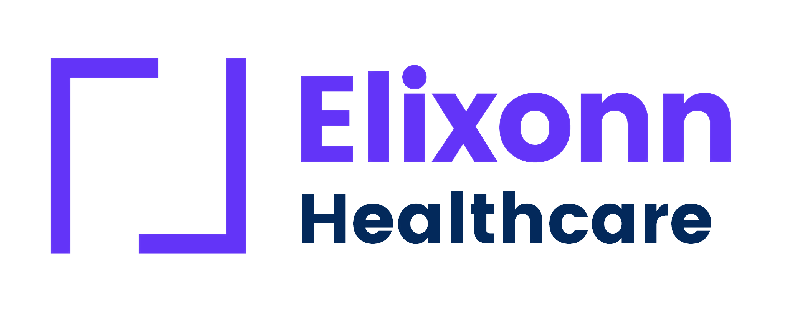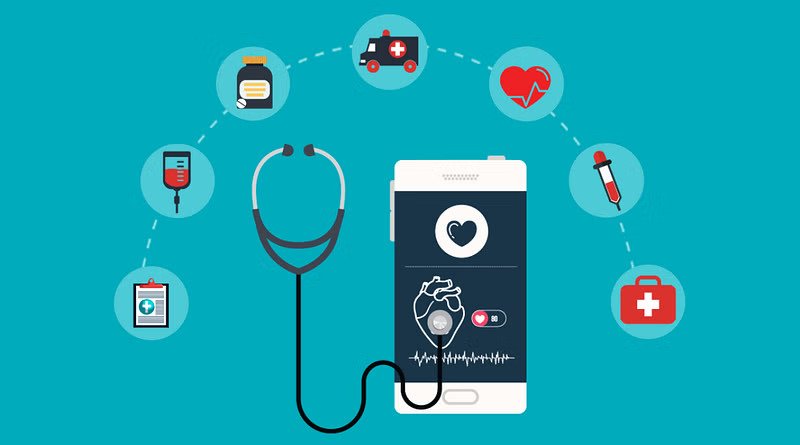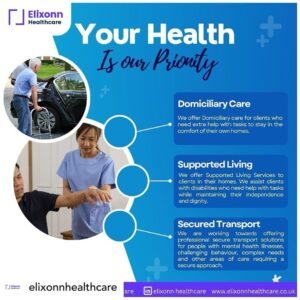In the rapidly evolving landscape of healthcare, the integration of mobile apps has become imperative for startups seeking to revolutionize the industry. As we delve into 2024, the role of mobile applications in healthcare startups is more critical than ever. Here are nine compelling reasons why healthcare startups should prioritize the development of mobile apps:
1. They aid Patient Engagement and Empowerment
Mobile apps empower patients by providing them with easy access to their health information, appointment scheduling, and medication reminders. Improved patient engagement leads to better adherence to treatment plans and encourages a proactive approach to personal health, ultimately contributing to better health outcomes.
2. They promote Telehealth and Remote Patient Monitoring
The rise of telehealth has been accelerated, and mobile apps play a pivotal role in facilitating virtual consultations and remote patient monitoring. Healthcare startups can leverage mobile platforms to offer telemedicine services, enabling patients to connect with healthcare professionals from the comfort of their homes. This not only improves accessibility but also enhances the overall efficiency of healthcare delivery.
3. They Make Appointment Management and Scheduling Seamless
Mobile apps streamline the appointment scheduling process, reducing administrative burdens on both healthcare providers and patients. With features like real-time availability, automated reminders, and easy rescheduling options, healthcare startups can enhance the patient experience and optimize the utilization of medical resources.
4. For Health Tracking and Wearable Integration
Integrating health-tracking features into mobile apps allows users to monitor their vital signs, physical activity, and overall well-being. Compatibility with wearable devices enables seamless data synchronization, providing healthcare professionals with valuable insights for personalized treatment plans and preventive care.
5. They Improve Medication Adherence
Medication non-adherence is a significant challenge in healthcare. Mobile apps can play a crucial role in improving adherence by sending timely reminders, tracking medication intake, and providing educational content about prescribed medications. This not only benefits patients but also contributes to better overall healthcare outcomes.
6. For Efficient Data Analytics for Informed Decision-Making
Mobile apps generate a wealth of data that, when analyzed, can provide valuable insights for healthcare startups. By leveraging analytics tools, startups can gain a deeper understanding of user behaviour, treatment effectiveness, and overall app performance. This data-driven approach facilitates informed decision-making and continuous improvement.
7. They Promote Health Education and Information Dissemination
Healthcare startups can use mobile apps as platforms for health education and information dissemination. By providing reliable and easily accessible information, startups can empower users to make informed decisions about their health, fostering a culture of preventive care and wellness.
8. They Facilitate Enhanced Communication and Collaboration
Mobile apps facilitate seamless communication and collaboration between healthcare providers, patients, and other stakeholders. Features such as secure messaging, video conferencing, and file sharing contribute to improved coordination of care, especially in cases where multidisciplinary teams are involved in patient treatment.
9. They Confer Competitive Advantage and Market Presence
In a competitive healthcare landscape, having a robust mobile app can set startups apart from the competition. A well-designed and user-friendly app not only enhances the startup’s credibility but also attracts tech-savvy users who prioritize digital solutions. This, in turn, contributes to the growth of the startup and its market presence.
Elixonn Healthcare Mobile App
At Elixonn Healthcare Ltd, in collaboration with our sister company, Elixonn Ltd, we are developing a custom-made application that converts offline everyday routine processes and practices to electronic signals that operate at the touch of a button on mobile devices for healthcare companies. This removes the burdensome paperwork and increases efficiency and service delivery. Our app targets specific procedures and the general operational aspects of domiciliary care. We will automate staffing, record keeping, customer service, clinical activities, bookkeeping, information dissemination, etc. This app will be available for use in the second quarter of 2024. We can also build similar apps for your healthcare startup, contact us today.
Conclusion
The incorporation of mobile apps is a strategic imperative for healthcare startups in 2024. From improving patient engagement to embracing telehealth solutions, mobile applications have the potential to revolutionize the way healthcare is delivered and experienced, positioning startups at the forefront of innovation in the industry.






